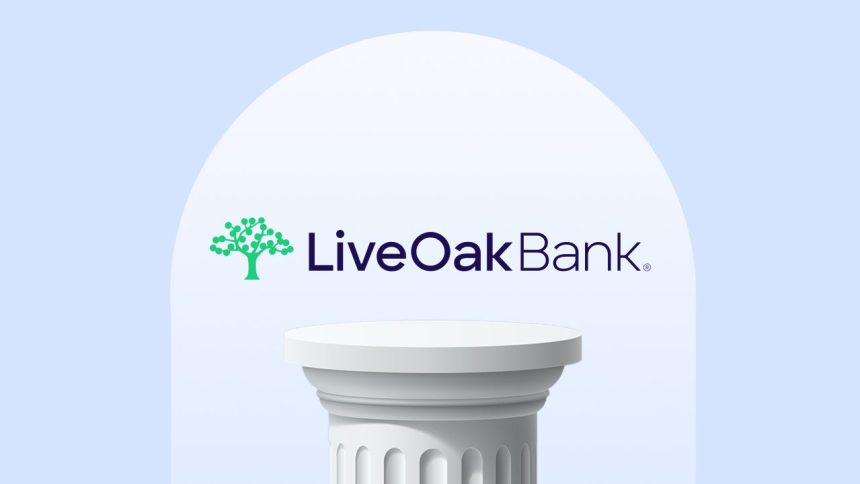You’ve mapped out your business strategy. You know your growth goals, revenue targets, and the investments that will take your company to the next level. But do you have a business savings strategy?
For many business owners, savings is an afterthought—something to figure out once profits are higher or expenses settle down. But this ignores the time value of money. Where and how you save can impact your company’s financial health just as much as your growth plans. Make sure your money is working just as hard as you are.
Keep in mind:
Choosing the right business savings account is about more than interest rates. Factors like fees, accessibility, and reliability matter. Some banks offer flashy introductory rates that disappear, while others make it difficult to access your funds. Taking the time to find a bank that supports your business goals gives you the flexibility to seize opportunities.
Live Oak Bank is one example of a business-focused bank that consistently ranks among the top for high-yield savings. With FDIC insurance, strong customer support, and a commitment to businesses, it provides a straightforward way to maximize savings.
Why it pays to have a business savings account
A business savings account isn’t just a place to park excess cash. It’s a foundational piece of a larger financial growth strategy. While business owners often focus on revenue generation, having a plan for how to manage and grow cash reserves is just as critical. A well-structured savings strategy ensures that your business remains financially agile, prepared for unexpected expenses, and positioned to capitalize on new opportunities.
What to consider when opening a business savings account
Not all business savings accounts are created equal. While the primary goal is to grow your reserves, the right account should also provide security, flexibility, and ease of access. A high interest rate is important, but other factors can impact how effectively your savings work for you. The following include key factors to evaluate when selecting a business savings account.
APY
The annual percentage yield (APY) determines how much interest your savings will earn over time. Many banks offer promotional rates that drop significantly after a few months, while others provide consistently competitive returns. A business-focused bank that prioritizes long-term value over short-term incentives can help you maximize your savings potential.
Account fees and minimum balance requirements
Some banks charge monthly maintenance fees or require high minimum balances to avoid penalties. These costs can quickly eat into your interest earnings, reducing the benefits of saving. Look for an account with minimal fees and reasonable balance requirements to ensure you’re keeping more of what you save.
FDIC insurance
Not all institutions offering high-yield savings accounts are federally insured. FDIC insurance protects your deposits up to $250,000 per account, providing peace of mind that your funds are secure. Before opening an account, verify that the bank is FDIC-insured and has a strong reputation for financial stability.
Integration with business software and online banking features
Seamless access to your funds is critical for managing cash flow efficiently. A good business savings account should integrate with accounting software, offer mobile banking, and provide user-friendly online account management tools. Features like automated transfers, spending insights, and real-time transaction tracking can make managing your savings easier and more efficient.
Business lending products and financial services
Your banking needs may evolve as your business grows. Some banks offer savings accounts as part of a larger suite of financial products, including business loans, lines of credit, and treasury management services. Choosing a bank that understands business banking and offers a full range of financial solutions can provide long-term benefits.
Level of service offered
The level of service a bank provides can make a significant difference in how efficiently you manage your business finances. Whether you prefer digital self-service tools or hands-on support, choosing a bank that aligns with your service expectations ensures a smoother banking experience.
ATM access and branch locations
If your business relies on cash deposits or frequent withdrawals, consider whether the bank offers ATM access or physical branch locations. While many online banks provide competitive savings rates, they may have limited options for in-person banking, which could be a drawback for businesses that need more direct access to their funds.
Merchant services and payment processing options
For businesses that handle a high volume of transactions, some banks offer merchant services that integrate with their savings and checking accounts. Features like payment processing, invoicing, and payroll services can streamline financial management and improve operational efficiency.
Live Oak Bank
When selecting a business savings account, consistency, security, and accessibility are key. Live Oak Bank is one option that stands out for its high-yield savings, lack of fees, and dedicated customer-support team.
Bottom line
A smart business savings strategy is part of a solid growth plan. Where and how you save can impact your company’s financial flexibility, resilience, and long-term success. By choosing a high-yield business savings account, you ensure that your reserves are working for you, earning competitive returns while remaining accessible when needed.
Not all savings accounts offer the same benefits. Interest rates, fees, security, and customer support all play a role in finding the right fit for your business. Live Oak Bank is one example of a provider that offers consistently competitive rates, FDIC insurance, and a straightforward digital banking experience, making it a strong option for business owners looking to optimize their savings.
Ultimately, the best business savings account is one that aligns with your company’s financial goals. Taking the time to evaluate your options can help ensure your savings strategy supports your business—not just today, but well into the future.
Read the full article here
















